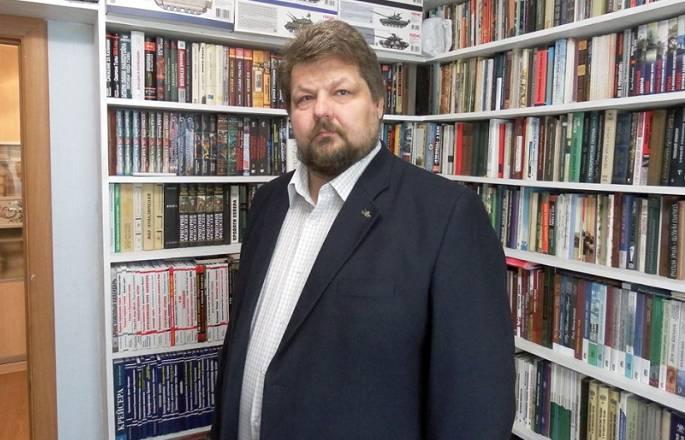Russian military expert deems Indian weapons supplied to Armenia useless "It's scrap metal"
Caliber.Az presents an interview with Russian military expert Alexei Khlopotov discussing the quality issues with Indian weapons purchased by Armenia.

— The weapons purchased in India arrived in Armenia in a faulty condition and their use is impossible. This was stated by former Armenian Defence Minister Arshak Karapetyan. What do you think went wrong between Armenians and Indians?
— If the former Minister of Defence complained about the quality of the weapons received, then, in order to understand this tragicomic situation, we should first of all look at what were the agreements on this matter? What was the value of the weapon, how was its delivery and acceptance agreed upon, etc.? Something tells me that the cost of the contract was minimal, purely symbolic, and these systems were supplied based on their availability in the army warehouses. So, perhaps, the Indians simply sold it to Armenians, and then you can sort it out yourself. It is literally according to this scheme - Indians are capable of it.
And besides, first of all, if you want effective, modern weapons, they cost money. And something tells me that Yerevan is neither willing nor able to pay for such a pleasure. After all, the contract for the supply of weapons also includes conditions for their maintenance and operation, as I noted above. Specialists are invited to help put these weapons into operation, train personnel and so on. As I understand it, nothing like that happened here. And to complain to Armenians now about the quality of the weapons supplied is very funny. Yerevan received a bunch of something incomprehensible for pennies - well, what did you expect? It would have been much smarter to say that they got a chocolate candy. But no, even that was not clever enough - Armenia, as always, makes itself look offended and aggrieved. Such "Yaroslavna's lament" comes from Armenia all the time - it is something, apparently, at the level of mentality.
— The Indian military-industrial complex itself is also questionable, to put it mildly, not the best known in the world of armaments....
— The choice, let us say, Armenians made was not a good one; this is exactly the kind of choice when Yerevan outsmarted itself. One should take into account the peculiarities of the Indian approach to labour. And Indians, let's be honest, are far from being the most diligent and quality producers of weapons in general. I judge from the direct experience of the Russian military-industrial complex with the Indians, I studied the details of this co-operation directly, being a military expert in the field of tank equipment. Here, the Indians showed simply marvellous unwillingness to work and do something. That is, Indians literally have to be forced to work. Therefore, in general, production in India thrives only if it is under the control of foreign supervisors - usually Americans or British. That is, it is very Indian to delay work as long as possible, to do a lousy job and then write a beautiful report on the high-quality work done.
— Let’s just say, the Armenians did not make the best choice; this is precisely one of those choices when Yerevan outwitted itself. It is necessary to take into account the peculiarities of the Indian approach to work. And the Indians, let’s be honest, are far from the most efficient and high-quality manufacturers of weapons in general. Judging by the direct experience of the Russian military-industrial complex with the Indians, I studied the details of this cooperation directly, being a military expert in the field of tank technology. Here the Indians simply showed miracles of unwillingness to work and do something. That is, Indians literally need to be forced to work. Therefore, in general, production in India flourishes only if it is under the control of foreign curators - usually Americans or British. That is, to delay the work to the maximum, make a mistake and then write a beautiful report on the high-quality work done - this is very Indian.
Having received, for example, a license from Russia to produce the T-72M1 tank in the early eighties, the Indians were able to master its production only in the nineties, when the model of the tank itself was, in fact, already outdated and lost its relevance in the world of weapons. It’s about the same story with the Russian T-90, when a joint project for its production with the Indians got stuck in the swamp of Indian red tape and lasted for a decade, if not more. As for the project to create the national tank “Arjun”, India also implemented it according to the “bungle-blunder” formula. Its development has been going on since the 80s, that is, almost forty years. India is trying to create a formula for a national tank, during all this time several copies have been produced, but it has never entered full mass production. The Indians were never able to perfect this machine in order to put this tank into mass production and fill the national army with it. Instead, the tank shortage is covered by Russian T-90s, most of which were assembled directly in Russia, and not by the Indians themselves. Can you imagine the grotesque situation?

Prime Minister Narendra Modi's Make in India campaign was intended to transform India into a global manufacturing hub that could compete with neighboring China. The main problem is that there is still too little real content behind the beautiful slogan. After all, the main point of the Make in India program was the indispensable condition that by purchasing this or that technology, India automatically acquired a license for its production. Thus, India intended to overtake China. But for some reason, neither Russian MIGs nor French Rafales are still flying in the skies of India. So, I think, with the Indian Pinaka, which was assembled using analogues and a license from the Russian MLRS or some other weapon with which Armenia is so dissatisfied, a similar story happened - it was simply not brought to fruition, it was produced in a clumsy way. Which in military parlance means that it is simply unusable.
— How then does Armenia intend to use such weapons?
— In fact, the state of supplies from India does not even matter much - the fate of these weapons in Armenia is still the same - it is scrap metal, which is of no use. Therefore, I perceive it as a purely political step, and not as a practical one. Against whom and how are they going to use it? Fight with Azerbaijan again? But the result is obvious - Armenia will lose again with a deafening crash. It's completely predictable. So what Armenia’s weapons are for is not entirely clear.
I don’t know, maybe these purchases of Indian multiple-launch rocket systems (MLRS) help Yerevan somehow increase its self-confidence? Maybe psychologically Mr. Pashinyan feels more comfortable this way? But this is more likely in the realm of sexual-political perversions than a conversation, excuse me, on the merits. But in reality, the military potential of Armenia and Azerbaijan is incomparable from the word “in general.”
— Wouldn't it have been easier to engage in peace talks?
— Well, it’s Pashinyan’s constant attempts to bargain for something on this path that amazes me. Maybe it would be worth swallowing this bitter pill of defeat, sitting down at the negotiating table and finally resolving the issue of the Zangezur corridor? Towards adequate mutual economic benefit, first of all. What prevents Armenia from reaching an agreement, launching a corridor and receiving money into the state treasury? What's actually wrong with that? Sit and improve the welfare of your citizens, and they will forget about the loss of Karabakh, about the military defeat, your electorate will applaud you. And such provocative opposition from Yerevan can only lead to one thing: all issues will be resolved by force. It is clear that Azerbaijan will still strive for what Armenia signed up for in the Tripartite Statement of November 10, 2020, and it is naive to believe that Baku will forget about this.
Moreover, listening to Ilham Aliyev's recent speech, I just want to applaud and say: I am absolutely sure that with such leadership Azerbaijan will achieve the launch of a transport corridor through the territory of Armenia, no matter how Yerevan wiggles from side to side.








